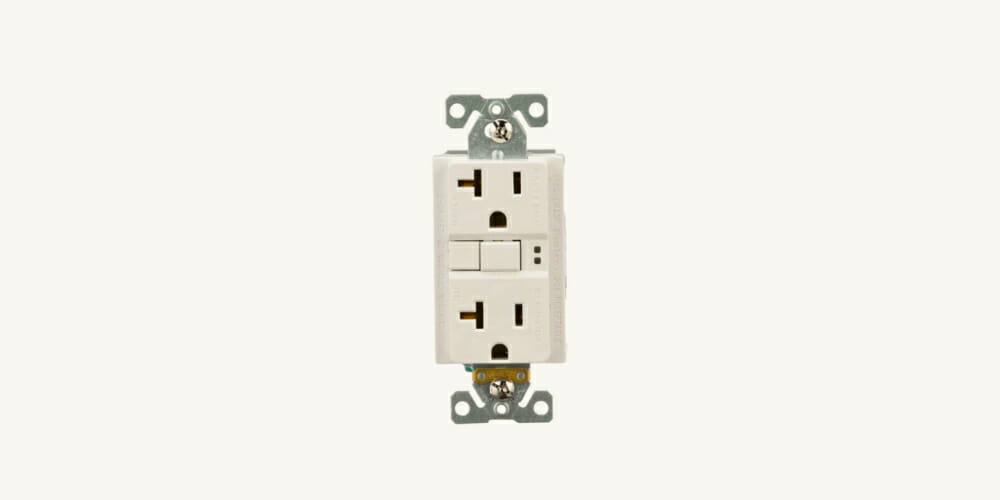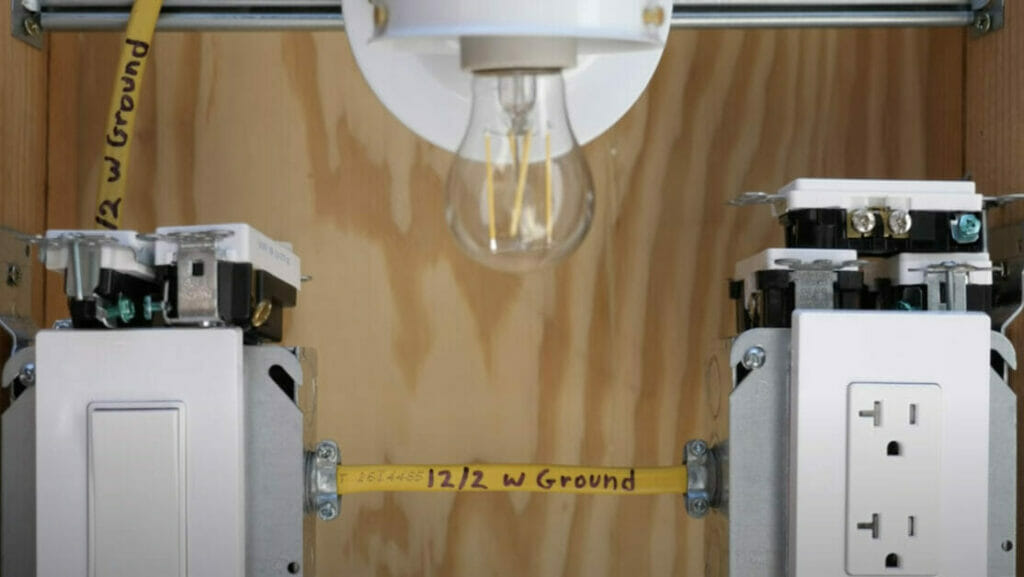What is a 20 Amp Outlet? (Differences & Features)

The 120-volt system used in the United States allows for installing 20-amp circuits. So if you’re dealing with an outlet, you should know about 20-amp outlets, like how it differs from a regular 15-amp outlet.
This article covers both aspects of using 20-amp outlets and their advantages and disadvantages.
20-Amp Outlets
20-amp outlets are designed for higher-powered appliances than 15-amp outlets can handle.
Appliances such as microwave ovens, refrigerators, and washing machines may require 20-amp outlets. So they are usually necessary for the kitchen and dining room. Receptacles in these areas of the home should be rated at 20 amps [Carson Dunlop, 2003].
20-amp and 15-amp Outlets
Compared to a regular 15-amp outlet, a 20-amp one looks almost identical.
One difference you will notice on the outside is the t-slot on some 20-amp outlets, whereas a 15-amp one has a vertical slot. The extra t-stroke is part of the neutral slot at right angles to the hot one. Some even have a u-shaped slot.
These 20-amp outlets with t-slots accept both 15-amp and 20-amp plugs. But an older type of 20-amp outlet has a horizontal neutral slot (not a t-slot). You cannot fit conventional plugs into them.
Another important thing to know is that you can’t use 20-amp outlets on 15-amp circuits. The wiring and circuit breaker must support 20-amp outlets on its circuit.
Usually, a 14/2 wire is used on a 15-amp circuit, and a 12/2 wire on a 20-amp circuit. Also, as you would expect, a 15-amp circuit will have a 15-amp circuit breaker, and a 20-amp circuit will have a 20-amp circuit breaker.

Advantages and Disadvantages
A 20-amp outlet offers two key advantages over a regular 15-amp outlet:
- It’s suitable for high-powered appliances.
- It usually provides GFCI protection.
However, the 20-amp outlet will allow you to run appliances requiring greater power, but it’s more expensive than a 15-amp outlet. It also relies on a 10 or 12-AWG wire and a 20-amp circuit breaker, which are costlier than their equivalents for a 15-amp circuit (12 AWG wire and 15-amp circuit breaker).
FAQs
Can You Replace a 15-Amp Outlet with a 20-Amp One?
A common scenario is when you have a 15-amp outlet installed and must replace it with a 20-amp one. Can you take out the 15-amp outlet and replace it with a 20-amp outlet?
No, as explained above, you can’t do that. You would need to look at the wire used on the circuit and the circuit breaker.
If it’s a 14/2 wire, you can’t, and shouldn’t, do it without replacing the wire with at least a 12/2 one. It might be better to install the 20-amp outlet on a separate dedicated circuit instead of replacing the wire, especially if it’s concealed. However, if it’s a 12/2 wire, you might only need to change the 15-amp circuit breaker with a 20-amp one before installing the 20-amp outlet.
Can You Install a 15-Amp Outlet on a 20-Amp Circuit?
If you’re wondering whether you can install a 15-amp outlet on a 20-amp circuit, you can.
A circuit capable of supporting 20 amps of electrical current requires a 10 or 12 AWG wire and a 20-amp circuit breaker. Although designed for use with 20-amp outlets, you can also install 15-amp outlets on it. NEC standards permit it, but an unnecessary expense unless you also have 20-amp outlets.
However, the circuit will not protect if the current exceeds 15 amps, which may be necessary unless it comes closer to 20 amps.
References
20 amp receptacle: https://www.lowes.com/pd/Eaton-White-20-Amp-Decorator-with-Wall-Plate-Outlet-GFCI-Residential-Outlet/1002337410.
Carson Dunlop. Principles of home inspection: Systems & standards. Kaplan Financial Series. Vol. 14. Dearborn Home Inspection (Firm). Dearborn Real Estate, 2003.
Video Reference
Sparky Channel
